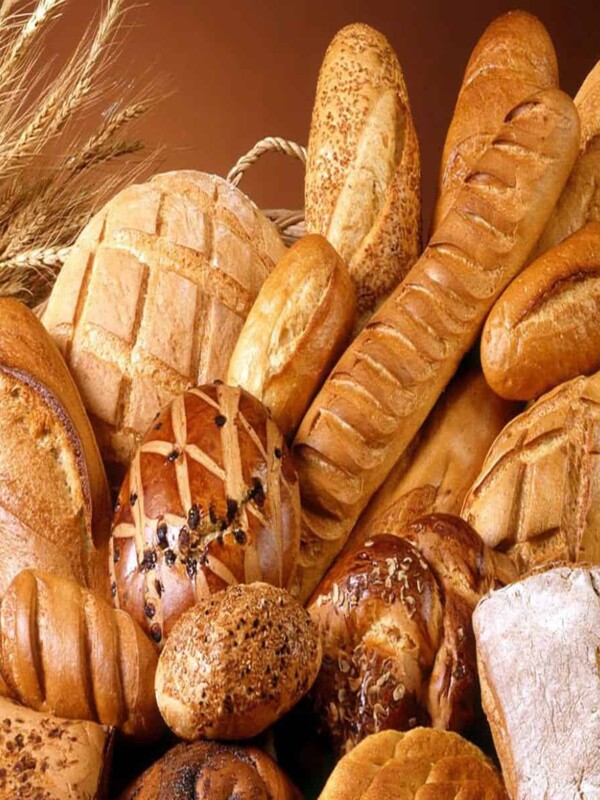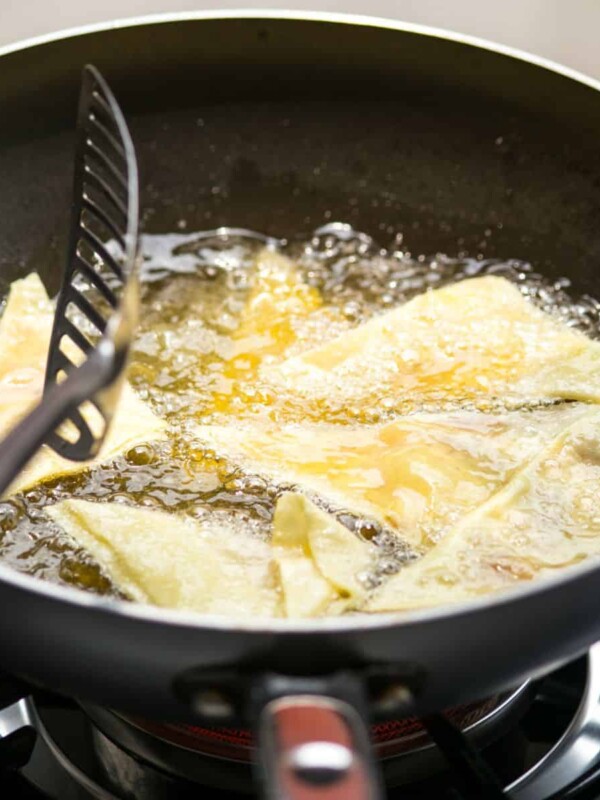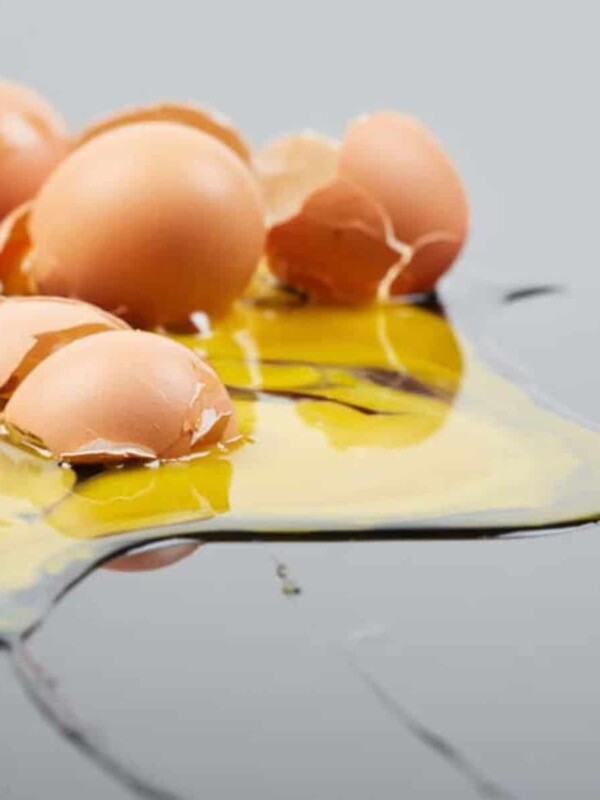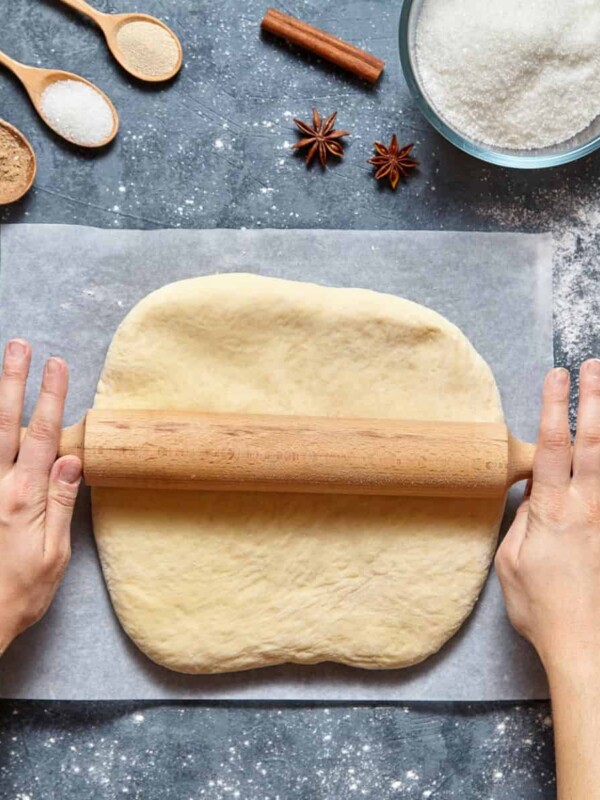This post may contain affiliate links. Please read our disclosure policy.
In the world of cooking, the choice between ghee and butter can be a confusing one. So knowing when to use ghee instead of butter can open doors to culinary magic.
While both have their unique characteristics and flavors, ghee holds a special place in many traditional cuisines around the world. With its rich aroma and nutty taste, ghee offers several advantages over butter in certain situations.
Ghee Does Wonders to the Flavor of Some Dishes!
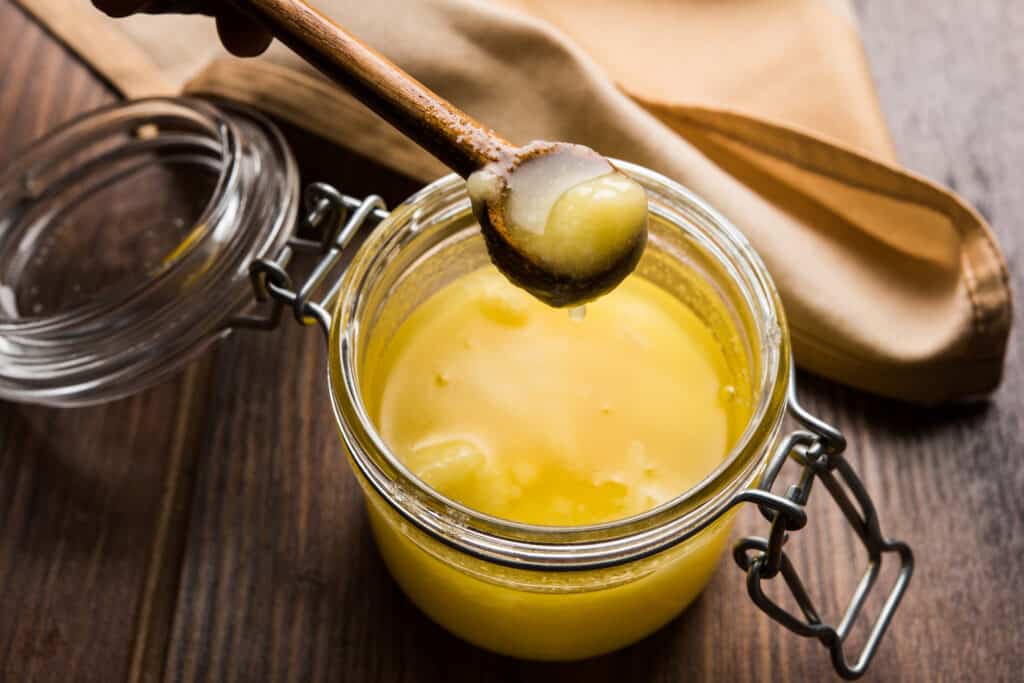
Ghee has a High Smoke Point for Sautéing and Frying; Unlike Butter
One of the primary reasons to opt for ghee over butter is its high smoke point.
Ghee has a smoke point of around 450°F (232°C), significantly higher than butter’s smoke point of approximately 350°F (175°C). This property makes ghee an excellent choice for high-heat cooking methods such as sautéing and frying.
Unlike butter, ghee won’t burn or release a burnt flavor, allowing you to achieve a beautiful golden sear on meats and vegetables without compromising taste or quality.
Some Ghee with Rosemary and Other Herbs Enhances Dishes Greatly
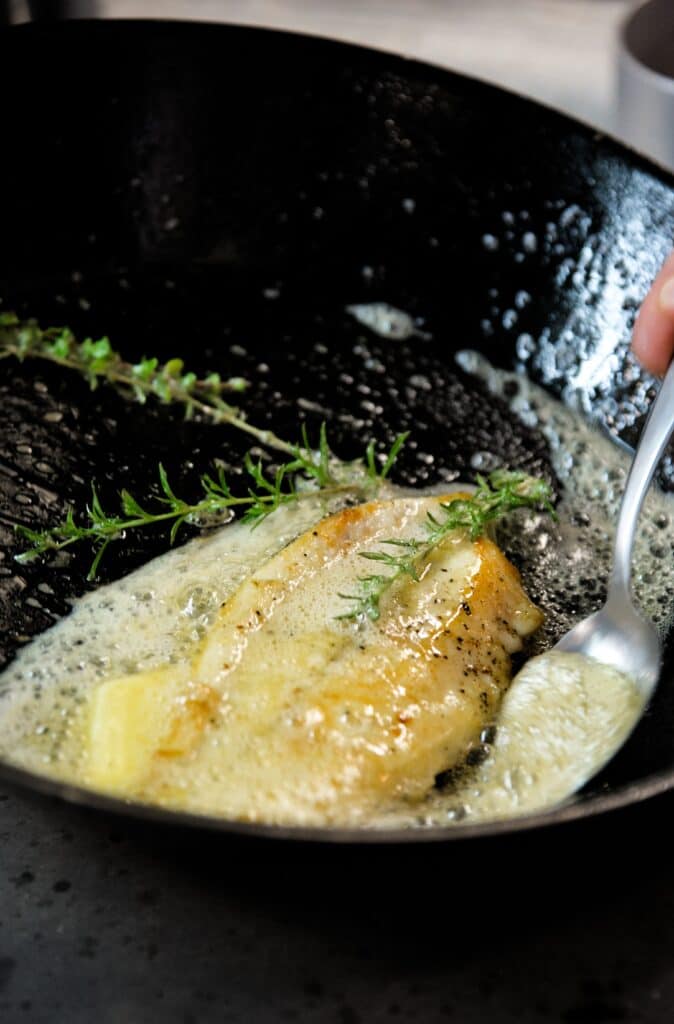
Enhanced Flavor and Aroma in Ghee
Ghee possesses a distinct, rich flavor and enticing nutty aroma that sets it apart from butter. It can be just the thing to give the umami punch a dish needs to stand out.
The process of making ghee involves simmering butter to remove its milk solids, leaving behind pure, clarified butterfat. This clarification process intensifies the natural flavors and gives ghee its signature taste.
When used in cooking or as a finishing touch to dishes, ghee can elevate the flavor profile, adding a delightful depth and complexity.
Ghee is a Lactose and Casein-Free Alternative
For individuals who are lactose intolerant or have dairy allergies, ghee provides a viable alternative to butter.
During the clarification process, the milk solids, including lactose and casein, are removed from ghee. As a result, ghee becomes nearly lactose and casein-free, making it more easily digestible for those with sensitivities.
However, it is essential to note that ghee may still contain traces of these components, so those with severe allergies should exercise caution and consult with a healthcare professional if necessary.
Though Butter is Sometimes the Obvious Choice, It may not Always be the Best Choice
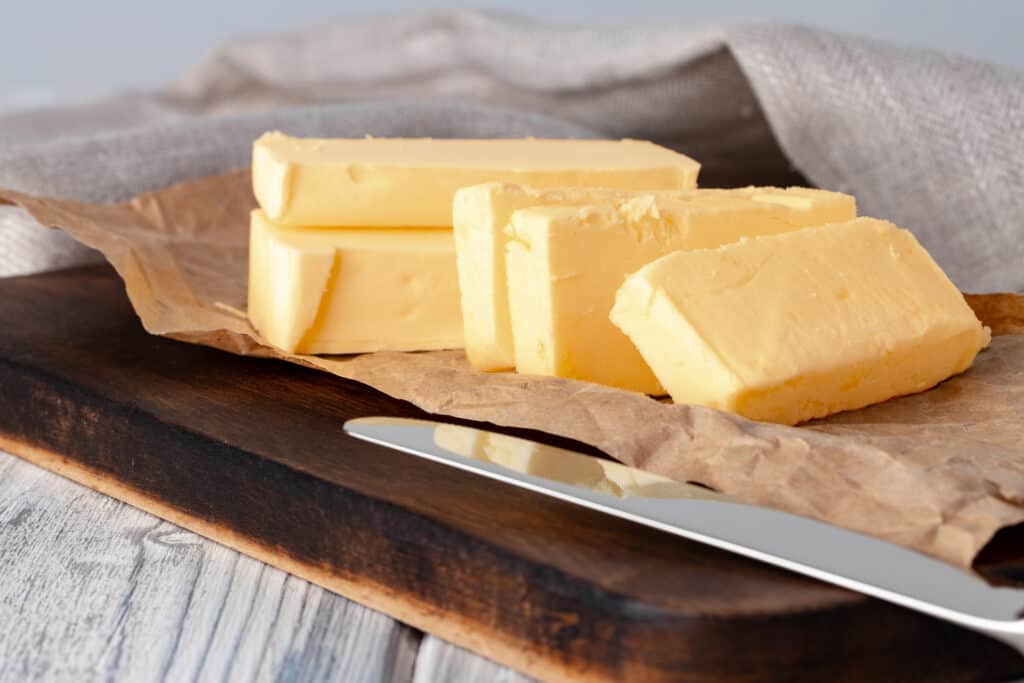
Ghee vs. Butter: Shelf Stability and Longer Storage Life
Ghee boasts impressive shelf stability, making it a pantry staple that can last for months without refrigeration.
The removal of water and milk solids during the clarification process eliminates the elements that contribute to spoilage, allowing ghee to remain fresh for an extended period.
This quality makes ghee ideal for preserving the integrity of your ingredients, especially in warm climates or when planning for long-term storage.
Traditional and Cultural Significance of Ghee
Ghee holds a deep-rooted history and cultural significance in many cuisines, particularly in South Asian and Middle Eastern cooking.
It has been revered for centuries as a symbol of purity, used in religious rituals and celebrated for its health benefits.
By incorporating ghee into your recipes, you pay homage to these rich culinary traditions and infuse your dishes with a touch of authenticity and heritage.
Cooking with Ghee
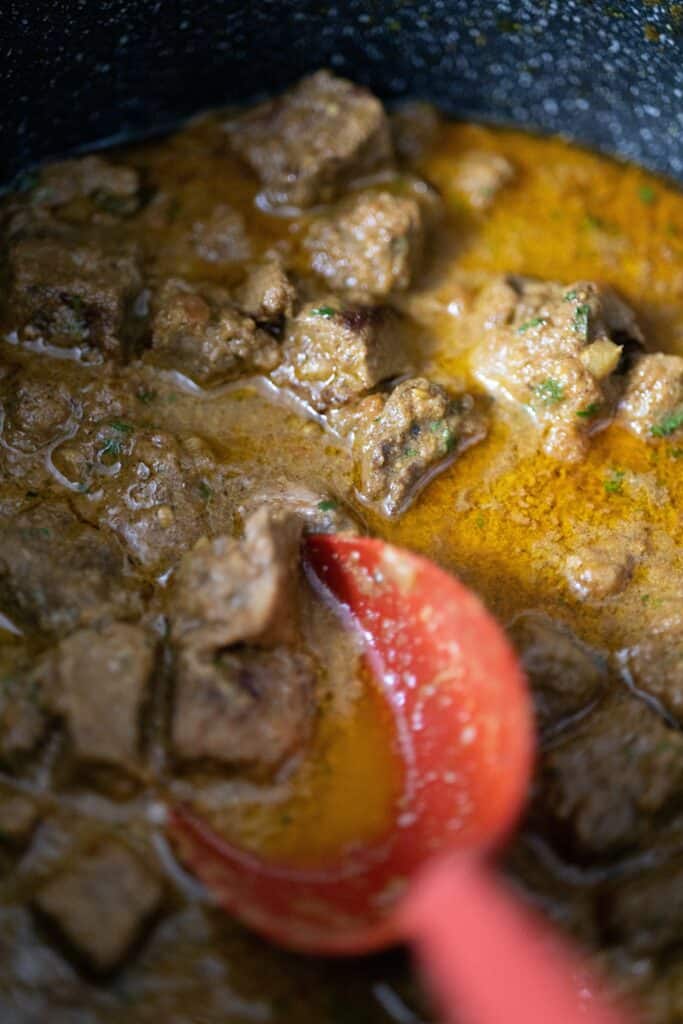
While butter remains a beloved ingredient in countless recipes, ghee offers unique advantages that make it a worthy substitute in certain cooking scenarios.
Its high smoke point, enhanced flavor, lactose-free nature, extended shelf life, and cultural significance contribute to its allure. Whether you’re sautéing, frying, or seeking to add depth to your dishes, considering ghee as an alternative to butter can unlock new dimensions of taste and provide a delightful culinary experience.
So, go ahead and embark on your culinary journey, experimenting with ghee to discover the magic it can bring to your kitchen creations.
Other Great Kitchen and Cooking Hacks:
- HOW TO FREEZE HERBS IN OLIVE OIL
- RICE VS QUINOA: WHICH ONE IS HEALTHIER AND BETTER?
- TOP 10 BEST VEGETABLE OIL SUBSTITUTES
- HOW TO STORE DRY HERBS PROPERLY
- DIFFERENT PASTA SHAPES AND THEIR USES
- REPURPOSING STALE BREAD
- HOW TO STORE STRAWBERRIES
- HOW TO CLEAN STAINLESS STEEL POTS AND PANS
- HOW TO STORE MINT
- DIFFERENT TYPES OF OIL AND THEIR USES

